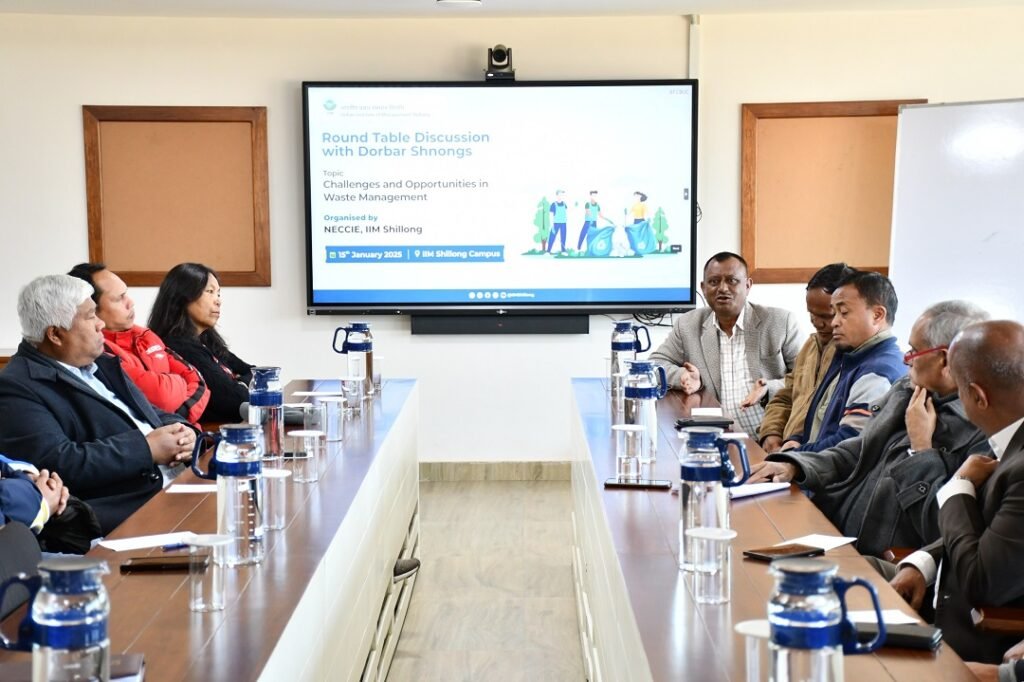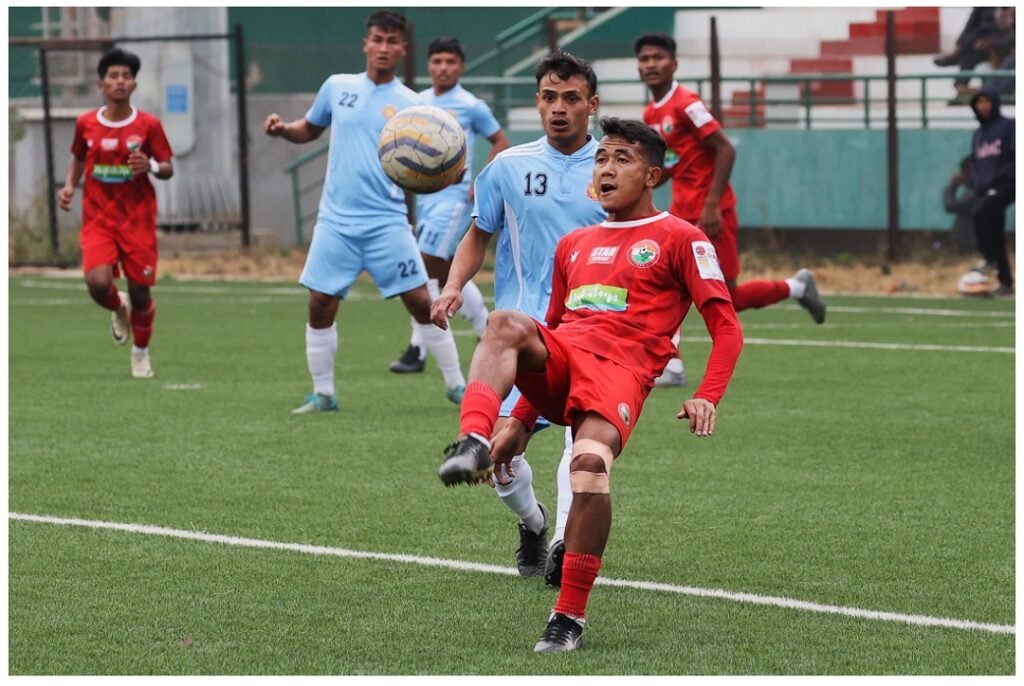Shillong, Jan 16: IIM Shillong hosted an impactful roundtable discussion focused on addressing the challenges and opportunities in waste management in the region on January 15.
The event, organized by NE-CCIE (Northeast Centre for Community Impact and Engagement), IIM Shillong, brought together key stakeholders, including representatives from the Meghalaya Institute of Governance, Bethany Society, OCU, and Synjuk ki Nongsynshar Shnong Nongthymmai Pyllun, to engage in meaningful dialogue on sustainable waste management practices for Shillong.
Prof. D P Goyal, Director, IIM Shillong, emphasized the importance of collaboration between academic institutions, government bodies, and local communities in addressing these challenges.
Col. Dinesh Adhikari, CAO, IIM Shillong also presented some of the best practices adopted by the institution for waste management, including innovative measures implemented on campus to reduce waste and promote sustainability.
The discussion centered on innovative approaches to tackle the city’s waste management challenges, driven by rapid urbanization and population growth. Participants also explored ways to integrate waste management practices with community involvement and policy support.
The key points discussed included – sensitizing communities to segregate waste at the source, alongside introducing labeled bins for organic and non-organic waste.
Community-targeted awareness campaigns were also proposed to enhance participation in these efforts.
The concept of installing water ATMs in strategic locations was proposed to provide clean drinking water and reduce dependency on single-use plastic bottles.
This initiative aims to address both environmental and public health concerns.
Also, each local community was encouraged to take responsibility for its waste management through training local youth to lead waste management initiatives.
This approach aims to foster a sense of ownership and create employment opportunities for community members.
The importance of river stewardship was underscored, with discussions on engaging communities residing near riverbanks to take an active role in preserving and managing river ecosystems.
This initiative focuses on reducing pollution, managing waste near water sources, and restoring the ecological balance.
Establishing recycling centers and composting facilities was discussed, aiming to repurpose non-biodegradable waste for energy generation or other uses while turning organic waste into compost.
Participants explored the potential to commercialize waste management practices.
Turning waste into economic resources would address environmental challenges and create meaningful employment opportunities for local communities.
Initiatives like developing commercial models for recycling and upcycling were viewed as vital to achieving economic and environmental sustainability.
Collaboration with local government was deemed essential to providing infrastructure, incentives, and policies for waste segregation, recycling, and eco-friendly initiatives.
Proposals included launching pilot projects in select areas to refine waste segregation systems and gather data on waste generation patterns, tailoring solutions to the needs of Shillong’s urban and rural areas.
Partnerships with environmental organizations and local NGOs such as Bethany Society and Synjuk ki Nongsynshar Shnong Nongthymmai Pyllun were identified as critical to implementing community-based waste management programs, including waste recovery and segregation training.
The roundtable concluded with a shared commitment to collaborative efforts in addressing Shillong’s waste management challenges and promoting sustainable practices. Participants emphasized that integrating innovative solutions with community-driven approaches and policy support would lead to a cleaner and more sustainable Shillong.


